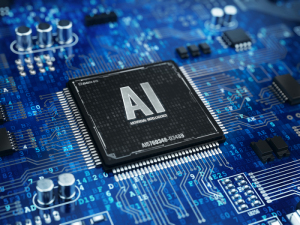por
John W. Mitchell, Senior Correspondent | September 28, 2018
A prospective review of literature found that for all the buzz around machine learning (ML) and artificial intelligence (AI) in medicine, undergraduate and graduate medical students don’t get much formal training in these emerging tools, suggesting there is currently too much reliance on computer scientists to bridge the ML/AI gap in medicine.
“By the time medical students become researchers or fellows, it’s probably too late,” Dr. Vijaya B. Kolachalama, Ph.D., lead author and assistant professor of medicine at Boston University School of Medicine (BUSM) told HCB News concerning the need for medical ML/AI training.
Kolachalama, a computer scientist, said that currently, the practice is for life sciences departments to “borrow” ML/AI expertise rather than to cultivate that expertise as part of medical training. His findings, in which a team widely reviewed published papers through the federal government’s PubMed library, found that the number of papers published in the area of ML/AI has increased since the beginning of this decade. In contrast, the number of publications related to undergraduate and graduate ML/AI medical education has remained relatively unchanged since 2010.
Their findings were just published in the journal
NPJ Digital Medicine.
The promising news is that Kolachalama reports that enrollment in an introductory course he has started offering at BUSM in ML/AI is increasing as more students in the medicine, public health, and dental schools are interested in the course.
“Five to ten years ago, it was rare for a computer course to be offered in a medical school,” Kolachalama said. “Medicine is very traditional, but ML/AI is just too useful a tool to overlook. Students are starting to embrace the technology."
He added that he was hired by the BU School of Medicine, in part, to help bring about better training in underlying ML/AI skills for medical students and researchers. He believes that as medical schools can offer successful case studies, ML/AI training for medical students will become part of the regular medical training curriculum.
The authors believe that if medical education begins to implement ML/AI curriculum, physicians may begin to recognize the conditions and future applications where AI could potentially benefit clinical decision-making and management early on in their career. Also, the authors cited the idea that technology without physician knowledge of its potential and applications might increase healthcare costs.
Back to HCB News
